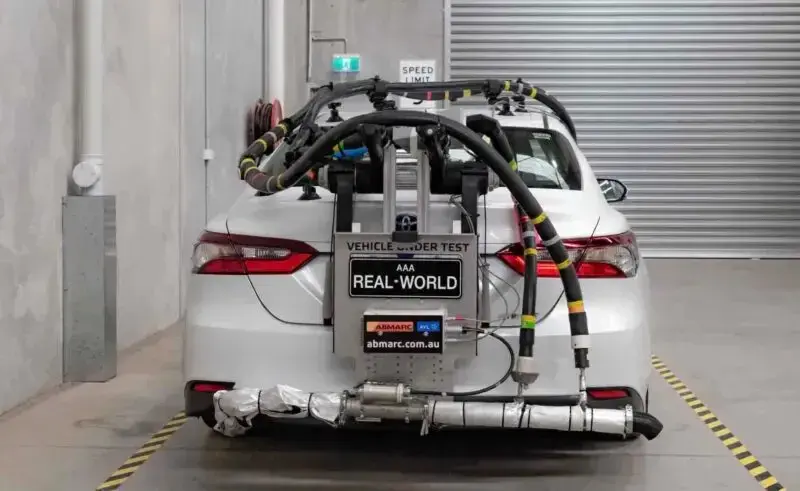
Some hybrid cars thirstier than their petrol peers - especially on highways
Jennifer Dudley-Nicholson
April 14, 2025
They are sold as vehicles that will cut petrol consumption but tests on Australian roads show some hybrid cars use more fuel than standard models.
In one case, a mild hybrid vehicle used 12 per cent more petrol than its internal combustion equivalent on highways and a conventional hybrid used almost three per cent more fuel.
The Australian Automobile Association revealed the findings on Monday in an analysis of 16 real-world tests on hybrid and petrol vehicles from five brands.
The news follows a spike in the popularity of hybrid cars, with sales of new models rising by more than 34 per cent in Australia over the past year.
The association tested 16 vehicles including six conventional hybrid cars, two mild hybrid vehicles and their petrol equivalents.
Mild hybrid vehicles feature a small battery and electric motor to assist a petrol engine during short bursts and both hybrid styles promise to cut petrol consumption.
The real-world tests performed in Victoria showed three out of four Toyota hybrid vehicles cut petrol use by more than 30 per cent on average, while a Honda CR-V hybrid and a mild hybrid Suzuki Swift reduced fuel consumption by 23 and 17 per cent, respectively.
But GWM’s Jolion hybrid vehicle cut consumption by significantly less than promised, with a 17 per cent fuel saving compared to 38 per cent indicated by laboratory tests.
It also used more petrol than the standard Jolion model when travelling on highways.
The Subaru Forester mild hybrid used more petrol than its internal combustion equivalent by 2.8 per cent on average, although the model has been discontinued.
The findings were stark given hybrids often commanded a higher price than petrol vehicles, Australian Automobile Association managing director Michael Bradley said.
“Our program continues to show that lab test results on the windscreens of new cars can differ significantly from real-world performance and cost-focused customers should do their research before spending their money,” he said.
Tests revealed hybrid vehicles were significantly more fuel-efficient on urban areas than rural roads and were at their least efficient on highways.
The Toyota Camry hybrid vehicle cut fuel consumption by 50 per cent on city roads, but only 13 per cent on highways.
The discrepancy was common for hybrid vehicles but many consumers were not aware of it, Australian Electric Vehicle Association national president Chris Jones said.
“The conventional hybrid, which is basically a very efficient petrol vehicle, has been optimised for start-stop traffic and that’s where most driving in Australia is done,” he said.
“It’s that optimisation for the low speeds that has resulted in a decline in the efficiency at high speeds.”
As a result, conventional hybrid vehicles may not be as useful for drivers in regional or rural Australia as a plug-in hybrid or an electric vehicle, Dr Jones said.
Australian motorists bought more than 47,000 new hybrid cars in the first three months of 2025, according to the Federal Chamber of Automotive Industries.
Comments
You need to be logged in to comment
No comments yet. Be the first to comment!
Need a website?
Then contact us for professional web development services.
Table of Contents
Share this article
More from the blog

Microsoft’s August 2025 Windows Update Is Breaking Streaming and Raising SSD Fears
Meta Description: Microsoft’s August 2025 Windows update (KB5063878 / KB5063709) is causing major problems for streamers and sparking SSD concerns. Here’s what went wrong, Microsoft’s slow response, an...

Microsoft Zero-Day Bug Exploit: How It Happened and What You Need to Do
Imagine waking up to the news that hackers have a secret key to your company’s data. That’s exactly what happened in July 2025 when a zero-day bug in Microsoft SharePoint was discovered to be under act...

Dembele, Yamal or Salah? Breaking Down the Bookies’ Picks for Ballon d’Or 2025
The Ballon d’Or trophy stands as the pinnacle of individual achievement in football – the gleaming prize that will be awarded on September 22, 2025. After a season of drama (Paris Saint-Germain clinch...